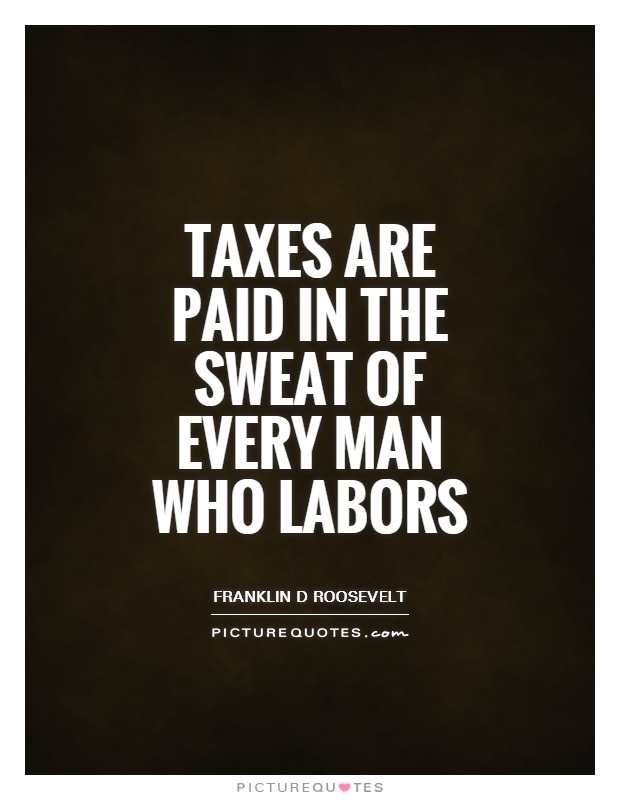Taxes are paid in the sweat of every man who labors

Taxes are paid in the sweat of every man who labors
Franklin D. Roosevelt, the 32nd President of the United States, understood the importance of taxes in funding government programs and services. He famously said, "Taxes are paid in the sweat of every man who labors," highlighting the fact that taxes are a necessary part of society and are essential for the functioning of a government.During his presidency, Roosevelt implemented a series of tax reforms and policies aimed at addressing the economic challenges of the Great Depression. One of his most significant achievements was the passage of the Revenue Act of 1935, which increased taxes on the wealthy and corporations in order to fund New Deal programs aimed at providing relief, recovery, and reform to the American people.
Roosevelt believed that those who benefited the most from society should contribute the most through taxes. He understood that taxes were a way to redistribute wealth and ensure that everyone had access to basic necessities and opportunities. By increasing taxes on the wealthy, Roosevelt was able to fund programs such as Social Security, unemployment insurance, and public works projects that helped lift millions of Americans out of poverty and stimulate economic growth.
Roosevelt's belief in the importance of taxes as a means of promoting social and economic justice was evident in his policies and speeches. He often spoke about the need for a fair and progressive tax system that would ensure that everyone paid their fair share and that the burden of taxation was distributed equitably. He believed that taxes were a way to invest in the future and build a stronger, more prosperous society for all.












 Friendship Quotes
Friendship Quotes Love Quotes
Love Quotes Life Quotes
Life Quotes Funny Quotes
Funny Quotes Motivational Quotes
Motivational Quotes Inspirational Quotes
Inspirational Quotes